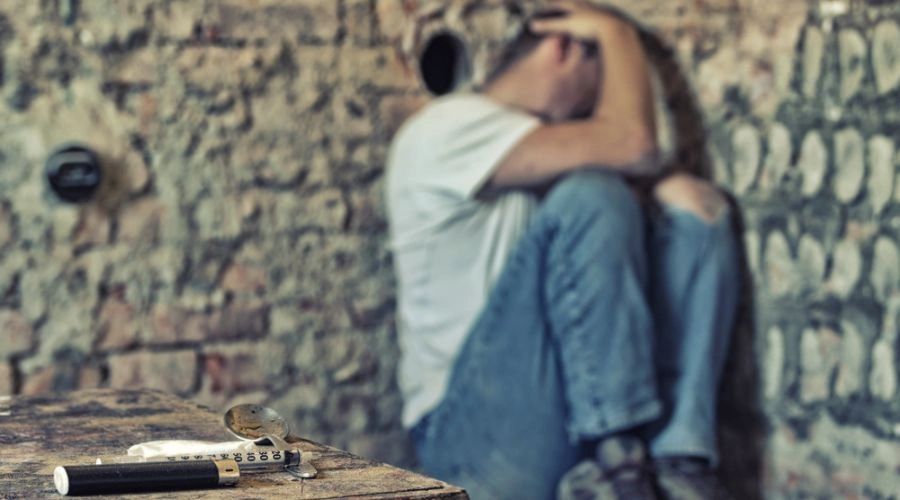Self-Paying for Rehab as a Medicaid Patient
Table of Contents
More than 70 million people are enrolled in Medicaid coverage across the nation. Of that number, tens of thousands are going to need to seek recovery through addiction treatment. Even with coverage, there may be times you don’t want to use it. You might be asking yourself: Can a Medicaid patient self-pay for rehab?
Medicaid is required to cover substance abuse and mental health services under the Affordable Care Act, but it may not fully pay the bill. Choose an in-network provider to ensure that you keep costs low, but remember that you can self-pay if you choose a program that isn’t covered.
Changes Healing Center is proud to accept Medicaid for our services in order to keep the cost to our clients as low as possible. Our enrollment team can verify your benefits and help you navigate complex coverage questions. In the meantime, here’s what you need to know about self-paying with Medicaid.
Paying for Addiction Treatment Services with Medicaid Coverage
Medicaid coverage for rehab is robust and offers much value to those under their umbrella. However, drug and alcohol treatment can be prohibitively expensive. You might be bracing for a fight with your insurance providers, but that may never be required.
The Affordable Care Act has changed how Medicaid covers certain expenses.
For example, substance abuse is considered one of your essential health benefits. That means that all insurance providers (including Medicaid) must cover rehab services and mental health issues. While it may not be paid in full, it represents a step in the right direction.
If you’re eligible for Medicaid, you should consider using it for your substance abuse treatment. It could be a huge boon to your finances not to have to pay for care at an accredited rehab facility.
Substance Use and Mental Health Parity

Those essential health benefits are backed up by another buzzword in the insurance industry: mental health parity. This term refers to the idea that your mental and behavioral health services are covered services under all plans.
Your insurance program (including Medicaid) must cover them to the same degree as a medical issue.
What does that mean in practice? Suppose you had to go to a specialist for an issue you had with your stomach. They might perform an ultrasound of your abdomen and discover that you have gallstones that need to be removed. You have surgery, and your insurance program covers 60 percent of the cost.
That means they must also cover 60 percent of your mental and behavioral health services to make things equal between the two types of services.
Choosing an In-network Provider
Choosing a provider is just as important as making that first decision to enter into recovery. Alcohol and drug abuse treatment centers abound, but you may want to find one that accepts Medicaid if you want to minimize out-of-pocket spending.
In fact, choosing an in-network provider may mean that you don’t have to pay anything at all with your Medicaid or Medicare coverage. These health insurance plans can be quite good if you can find a rehab that accepts them.
Changes Healing Center accepts many forms of AHCCCS (the proper name for Medicaid in Arizona is the Arizona Healthcare Cost Containment System or AHCCCS) to lower the barrier to receiving care for our clients. Our enrollment team can review the program in more detail with you over the phone and even verify your Medicaid benefits to see if you need to self-pay for your rehabilitation services.
But what should you do if Medicaid coverage still doesn’t foot the bill for your drug and alcohol rehab?
Self-paying for Drug and Alcohol Treatment with Medicaid Benefits
The best way to ensure that Medicaid benefits will cover addiction treatment in Arizona is simple but not easy: you must find a healthcare provider who accepts this insurance program. That means they have negotiated rates with Medicaid to make care more affordable to you, the client.
However, you might find that the ideal treatment programs aren’t in-network with your provider. How do you handle this if you know that you need help for substance use disorder and want to go to the perfect facility that feels tailored to you?
What Can You Afford?
First, you might have to consider whether you can afford to pay out of pocket. If you find you’re eligible for Medicaid, it is usually because you earn less than the threshold set by the federal government. Of course, there are other circumstances for becoming a Medicaid recipient, but money matters.
This might mean you have no expendable income, but providers will often work out a payment plan with you. You may be able to make it work with your supplemental security income if you budget carefully.
Changes Healing Center can verify your insurance benefits in a quick phone call. Our team can let you know whether we accept your state’s Medicaid program and go over the self-pay costs if not. There won’t be any surprises about what treatment will cost at our accredited treatment facility.
Will You Be a Private Pay Client?
Second, you must ensure you will be treated as a private pay client if you want to self-pay. Medicaid recipients always have the option to self-pay for services not covered, but they cannot self-pay for services that healthcare coverage will pay for.
In other words, this gets to the heart of the issue: You can’t self-pay for a service that Medicaid will cover. Healthcare providers who accept payment and accept Medicaid simultaneously could face the consequences from the federal government.
The ability to self-pay is great because it ensures that you get health coverage for the things that mean the most to you, including drug and alcohol addiction. You never have to worry about being shut out of treatment because you have multiple options for payment.
Choosing a Lower Level of Care for More Affordability

If you do have to self-pay for your addiction treatment, then it might be worthwhile to look into lower levels of care that are less intensive than residential treatment programs.
Outpatient treatment is still a necessary stepping stone toward recovery. You can get mental health services while practicing your skills in a real-world setting. Every day, you return and share your progress with a team that can cheer you on, help you scale your successes, and help you thrive outside of inpatient.
Even under the umbrella of outpatient services, you should receive mental health counseling. It allows you space to explore your inner world and learn why you make the choices you do. Be sure to check if you can afford an inpatient rehab program first, as most people need 24/7 care or a detox when they first leave substances behind.
At Changes Healing Center, we offer an intensive outpatient program where you can receive services during the day but don’t have to pay for room and board in our facility. Daily, you learn more in one-on-one counseling, group therapy, and support groups.
This also allows you to practice your new skills with family and friends while sleeping at home each night.
Contact Changes Healing Center to Enroll Now
Changes Healing Center offers robust addiction treatment programs alongside mental health and dual diagnosis treatment. Our accredited facility is ready and waiting to help you step into your recovery. We offer the full scope of services you need to heal, from detox to outpatient care.
If you have Medicaid or are worried about the cost of rehab services, our enrollment team can answer your questions and help you secure a spot in one of our programs.
Reach out to us today to get the ball rolling on an inpatient or outpatient drug rehab option!
References
- October 2024 Medicaid & Chip Enrollment Data Highlights. Medicaid. (n.d.).
- National Archives and Records Administration. (n.d.-a). Substance abuse and the Affordable Care Act. National Archives and Records Administration.
- Centers for Medicare and Medicaid Services. (n.d.-d). The Mental Health Parity and Addiction Equity Act (MHPAEA).
- Accepting and billing Medicaid beneficiaries. NC Medicaid. (n.d.).
